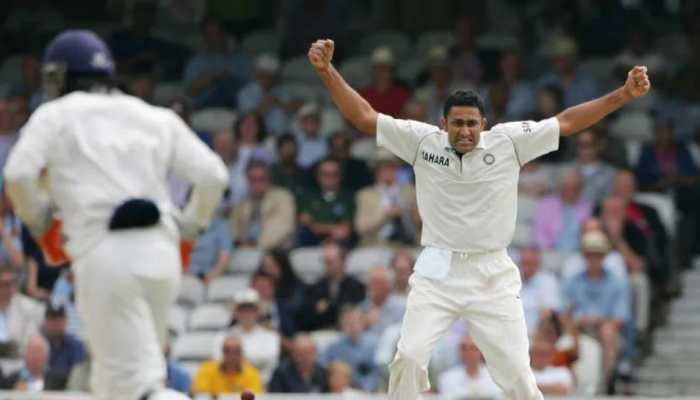Explained: Why Israel Blames Islamic Jihad, Not Hamas, For Deadly Gaza Hospital Attack
Israel-Hamas War: This comprehensive analysis sheds light on the complex dynamics surrounding the Gaza hospital attack and the reasons behind Israel's attribution of blame to Islamic Jihad rather than Hamas.
Trending Photos
)
TEL AVIV: A devastating explosion shook a hospital in Gaza, claiming the lives of at least 500 people this past Tuesday. This incident swiftly ignited worldwide outrage, leading to demonstrations in various Muslim-majority nations. The blame game between Israel and Palestine ensued, with US President Joe Biden condemning the act while en route to Israel. Amid the fog of war, a web of accusations, counter-accusations, competing online narratives, and rampant disinformation has deepened the confusion over who bears responsibility for the tragic hospital explosion.
Amid the ongoing conflict in the Middle East, Israel has identified the Palestinian Islamic Jihad (PIJ) as a more significant threat than Hamas. This distinction is rooted in a complex web of historical, political, and strategic factors. Israel's assertion that PIJ is responsible for the Gaza hospital attack is a focal point of their stance. The Israelis argue that PIJ's close ties to Iran and more radicalized stance make it a formidable adversary. On the other hand, Palestinians argue that Israel's occupation of Palestinian territories is the root cause of the conflict. They see groups like PIJ as resistance movements against Israeli occupation and aggression.
The narratives and counter-narratives reflect the complexities of the conflict, making a peaceful resolution challenging to achieve.
Israel's Accusation: Islamic Jihad's 'Misfired Rocket'
According to Israeli authorities, the hospital attack was a direct result of PIJ militants using the facility for military purposes, thus transforming it into a legitimate target. This allegation is central to Israel's argument, as it seeks to justify its actions in accordance with international law. The Israeli army squarely pointed the finger at PIJ, attributing the catastrophe to a "misfired rocket." In contrast, the Hamas-controlled Gaza health ministry accused Israel of bombing the Al-Ahli Arabi Baptist hospital. Israel's Defense Forces (IDF) supported their claim with video footage and satellite imagery, arguing that an Israeli airstrike could not have caused the deadly blast.
The Palestinian Islamic Jihad (PIJ) issued a statement, suggesting that Israel aimed to evade its role in the tragedy by fabricating lies and laying blame on the Islamic Jihad movement in Palestine.
Hamas also promptly held Israel responsible for the hospital explosion. Hamas leader Ismail Haniyeh, often seen as the faction's overall leader, unexpectedly pointed the finger at the US, emphasizing that Washington provided a "cover for its aggression." Saudi Arabia, the UAE, Bahrain, Egypt, Jordan, and Turkey echoed these accusations against Israel.
Why Israel Cites Islamic Jihad And Not Hamas?
Israeli authorities have refuted involvement, with the Israeli Defense Forces asserting that rockets fired by Islamic Jihad militants towards Israel misfired and struck the hospital. These rockets, sources claim, were fired by Hamas and the Palestinian Islamic Jihad. However, due to their proximity to the hospital, it resulted in a direct hit on the medical facility, leading to a high casualty count.
The Israeli Foreign Ministry released a statement, revealing that an analysis of IDF operational systems indicated that a barrage of rockets from Gaza, fired by terrorists, passed close to the Al Ahli hospital at the time of the blast. Many civilians and injured individuals sought shelter in the hospital, contributing to the unusually high casualty count.
Israeli military spokesman Rear Adm. Daniel Hagari emphasized that there were no air, ground, or naval attacks in the area at the time of the explosion, with Israeli radars detecting outgoing rocket fire and intercepted communications indicating that the Islamic Jihad fired the rockets.
Israeli Prime Minister Benjamin Netanyahu condemned the "barbaric terrorists in Gaza" for the deaths, clarifying that the Gaza hospital attack was not the work of the IDF. Mark Regev, a senior adviser to Netanyahu, supported this stance by highlighting rocket attacks and threats from Hamas during the same period.
Russia Demands Satellite Images
Russia's foreign ministry spokesperson, Maria Zakharova, called on Israel to provide satellite images to substantiate its claim of non-involvement in the Gaza hospital attack.
Islamic Jihad: A Palestinian Militant Group
Islamic Jihad, an ally of Hamas, participated in the October 7 attack on Israel from Gaza and is designated as a terrorist organization by the US State Department. The Palestinian Islamic Jihad (PIJ) vehemently opposes Israel's existence.
Founded in the late 1970s by Fathi Shiqaqi and Abdel-Aziz Odeh, Islamic Jihad gained support among Palestinians disillusioned with Yasser Arafat's Palestine Liberation Organization (PLO). Shiqaqi's assassination in 1995 in Malta further fueled the group's militant stance.
Islamic Jihad is committed to destroying Israel and establishing an Islamic state covering pre-1948 British Mandate Palestine, including the West Bank and Gaza. Inspired by the Iranian revolution, Shaqaqi and Awda established the group to militantly challenge Israel's existence.
The group initially operated in Gaza but later established a presence in Lebanon, where it developed close ties with Hezbollah and received arms training from the Iranian Revolutionary Guards. In 1981, the Egyptian government exiled PIJ to Gaza.
Islamic Jihad vs. Hamas
Islamic Jihad and Hamas are both militant groups in Gaza united in their resistance against Israel. Both receive funding from and maintain ties with Iran but function independently. While Hamas has sociopolitical functions as Gaza's governing body, Islamic Jihad is singularly focused on fighting Israel.
Iranian Influence
Iran's influence initially focused on Shia groups in Iraq, Lebanon, and the Gulf Emirates. In the late 1980s, Iran expanded its influence to Sunni-majority countries, including Palestine. Iran plays a significant role in funding Islamic Jihad, similar to its support for Hamas and Hezbollah.
Stay informed on all the latest news, real-time breaking news updates, and follow all the important headlines in india news and world News on Zee News.
Live Tv







)
)
)
)
)
)
)
)
)
)
